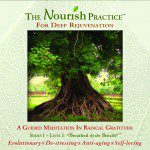Contributing Writer for Wake Up World
I can hardly think of a more mysterious, complex, and too often elusive concept than forgiveness. Most of us have little trouble forgiving minor violations, a la don’t sweat the small stuff. Like being late for an appointment, or forgetting to take out the trash, or not calling someone back. I even wonder if we forgive these daily foibles as much as we just ignore them because on their own, they just don’t run deep or cause significant harm.
But what about betrayal, conscious malevolence, or carelessness that costs us major heartache, upheaval, or financial loss? How do we wave the magic wand of forgiveness across a heart that has been hurt in deep, difficult, complex ways?
[pro_ad_display_adzone id=”110028″]
Forgiveness is a loaded concept, with bigger-than-life promise. It’s also advertised to be relatively easy. We are supposed to forgive, not only to release others from our upset and vengeance, but to free ourselves from suffering the pangs of resentment. There are visualizations to imagine the perpetrator in white light, breathing exercises to release injustices on the exhale, ritual gestures to give away our pain, all of which might help, or hinder our true passage to the elusive land of forgiveness. What is it to genuinely forgive, so that we end up feeling almost as though the incident never occurred? Is it to gradually forget, or merely grow away from what has been done to us, or others? Is it to empathize with and understand why someone else acted as they did? Does this heal the hurt in our hearts? Or is forgiveness—to the tune of a decision—of serious injustice, real betrayal, just a fantasy and not truly erased by wand-waving or easy exercises?
Most of us have been deeply hurt, where forgiveness of others and ourselves takes center stage. Setting an intention to forgive by saying, “I forgive you,” can be helpful if we do to set a goal—as long as we recognize that there is a lot of hard work to reach that goal, and that the process is not linear but deeply circuitous. We discover forgiveness as transformation by negation, by embodying what forgiveness seems not to be.
When we are able to be deeply present with our pain, as gut-wrenching as it may be, we are able to enter the place of transformation, that of metaphorically dying to be reborn. This is to live with emotional honesty, to feel our feelings. It means that when we hurt, when we lose something significant, when we are betrayed, when we are disappointed or devastated, and forgiveness as resolution is in order, we take these feelings at face value. We feel that hurt and let it be until it is no longer, or until we can go no further or don’t want to go farther with it. The pain dissolves to whatever degree, as we are transformed. Indeed we could say that the energy of the pain is precisely that which changes and renews us, allowing us to forgive. And the corollary is true too: no pain, no gain. Forgiveness in this sense is not a process separate from the tough work of allowing ourselves to be transformed by the hurt we want to forgive. Forgiveness is the door that opens as a result of sitting with the injury of the hurt.
When we feel this hurt, we begin a process I call “dying to our pain.” This means that we surrender to heartache, rather than try to “perspective” or “talk ourselves out of it.” It is valuable to understand the whys of being hurt—why someone cheated on or stole from us, broke a promise, acted with neglect or malice. We allow injustice and disappointment to change us, carry us down, teach us lessons about how to live and to care better, show us the places in ourselves where we have acted without integrity, how to better care for our hearts and the welfare of others. Feelings of shame, guilt, remorse, sadness, anger, rage, fear, and regret are common when we betray or are betrayed. These are difficult feelings to be with, so it’s no wonder we turn to easy forgiveness, instead of feeling these places that are the precursors for a full-bodied renewal. These trenches of hurt are the school of robust loving and the birthing grounds of genuine forgiveness—the unbidden light emerging from lots of hard inner work.
To forgive another, however, does not mean that we have to, or want to, continue to be in touch with them (him or her). If they have not changed, why put ourselves in harm’s way again? Sometimes the cost to leave a relationship with someone we have to forgive is greater than the cost of enduring the pain caused, such as with betrayal. It’s hard to know what the right decision is. We can begin the journey: embark on the process of accepting and healing our troubles, see where it takes us, how and if our mind changes, and assess as we go. It’s not easy and the journey requires us to get to know ourselves in a much more intimate way.
The degree to which we cannot feel “clear” of an injustice is the degree to which its still affects us. It is also possible that some pains never completely leave us. And this may not necessarily be a bad thing. If we feel strongly about a cause, this pain can fuel our activism for greater good. I am thinking about a Holocaust documentary I watched called “Elusive Justice,” about Jews who have made it their life’s work to track down and bring to justice Nazi war criminals that never faced prosecution.
I am particularly disturbed by the Holocaust, and this movie deeply moved me. It shined a new light on the notion of justice, revenge, and forgiveness—the former are not always bad and the latter not always entirely possible or entirely desirable. The pain of the atrocity allows these Jews to work for a greater good, the spiritual cause of rectifying history and the future, setting an example for appropriate punishment and morality. Whatever our stance with retribution and justice, at the very least, with profound injustice, forgiveness is complex.
Linear vs. Transformational Forgiveness
In the face of betrayal, linear forgiveness might say, “I forgive you for knowingly investing the money I loaned to you in a stock you had no good sense would succeed.” Transformational forgiveness might say, “I am furious, I am sad, devastated actually, that you lost my money, and I am not sure how to proceed; I need to sit with it.” Or, “I am pissed and compromised because you acted selfishly, lied to me, and did not communicate your truth so to allow me the opportunity to make a decision to take care of my needs. I need to go day by day towards resolution.”
Linear forgiveness might say to your partner who cheats on you, “I love you; I forgive you. I will let this go.” Or, “We can go on as if this didn’t really happen. I bless you; may God make this right.” Maybe some people can really live this way and have it work for them. But it does not come close to the congruency and honesty I need to feel at home in my own skin. Transformational forgiveness, on the other hand, might say, “I love myself and I love you, so I will tell you how this feels in accord with how I understand the facts of the situation, and ask that you please help me get them right. This hurts, this really hurts. I am so sad. I am also pissed, I feel destroyed, and I don’t know how to look at you anymore. I will abide in my authentic feelings as a radical form of love, so to deepen my own heart and maybe be able to accept you into my life in a deeper way. But we’ll have to see how the dust settles, how I and you feel about it, and where those feelings and my intelligence take me.”
By feeling our real feelings, we are eventually able to let go of our hurt, rather than gloss over it with methods that merely help us avoid our heartache. When we have processed and been processed by our hurt, forgiveness comes naturally, though not usually easily, as a by-product of being genuine, emotionally and intellectually honest, each step of the way. This way, forgiveness “finds us,” so to speak, instead of our merely expressing what we think forgiveness is, as a predetermined idea.
Transformational forgiveness like this is also paradoxical, in that it does not bypass your emotions to arrive at a “spiritual” outcome, but instead embraces the hurt you want to forgive. It seeks to release the hurt by accepting it, rather than dismissing or skirting it. We can also discover paradoxical compassion, truth, faith, sacredness, strength, humility, and magic by embracing their apparent opposites. But not as an idea—as a fierce and radical process! This is the rich, powerful, courageous, surprising, comprehensively loving, deeply meaningful way home.
We each have our own threshold for breaking open. Some of us will allow ourselves to grieve completely until grief is done with us, until it cleans us out and delivers us to large-heartedness and deeply sourced, unbidden joy. Others allow a little sadness, then shut down, move on—to a new lover, a new job, a new city, a new anything. I am reminded of the line from Mary Oliver’s stunning poem “No Voyage:”
“Men never go somewhere, they only leave wherever they are, when the dying begins.”
The degree to which we are willing to be with our own heartache, and be changed by it, is the degree to which we can engage in transformational forgiveness. Here forgiveness is not the idealized, contrived goal, but the inadvertent outcome of being authentic and true to the present reality of our hearts and minds. When we deny difficulty, we begin to “die,” even though we might try to compensate with a happy persona. On the other hand, ask us to spend a couple hours alone with our eyes closed feeling into our bodies to ascertain what is honestly there, without manipulating it with our interpretive fear or appall, and we might not be able to bear it. This is a very different brand of meditation, one that values our conditional nature, which then rewards us with a deeper embodiment and experience of the unconditional.
The gift of transformational forgiveness is that we are transformed in the process. Linear forgiveness, from what I can tell and have experienced, is fear and denial disguised as wannabe nobility and pretty-posturing spirituality. The latter might be a genuine gesture and attempt at peace, but it just doesn’t foster deep honesty, which is integration by way of transformation. It can actually become a covert self-harm because it denies significant hurt in our hearts. When we deny our heart’s pain, we consolidate and empower our wounds, no matter how “light,” impressive, or compassionate we might try to appear. A more radical compassion is to feel our immediate feelings and notice our immediate thoughts, sit with them, and make sure they are based on reality (if not, then we can look into what and why we have projected), and express them appropriately. This prevents backlogged pain from settling in us and being acted out on others. It also helps to root out our dysfunctional habits, communicate our truth, and also gives others the permission to be emotionally honest. This is how paradoxical compassion delivers us into transformational forgiveness.
Linear forgiveness is, in fact, the new-age antidote for avoiding difficulty, for avoiding the pain necessary to be transformed and birthed into radical forgiveness, as a by-product of lots of hard inner work that looks anything like our pretty ideas of forgiveness. It involves rage, disillusionment, depression, sadness, grief, helplessness, confusion, tremendous humility, and just about every other shitty feeling and state of mind you can imagine. The pain we try to forgive not only wakes us up, but contains the soul-octane necessary to transform and thereby powerfully change our lives.
Linear, superficial forgiveness is the feel-good holdout for avoiding pain when everyday love goes wrong. Many consider “love” to be a mysterious cosmic force, the amorphous answer to all our problems, an immutable power we can channel and share at will. We instead can think of love as the way we behave, enhanced by inner resources such as courage, creativity, generosity, patience, resilience, and self-knowledge. Certainly, what we commonly call unconditional love, as our presence and awareness, can feel like a power “greater than me.” Yet, unconditional love (also a behavior, by the way) does not automatically change our conditional circumstances; it is merely the first step towards working them out, which delivers us into our full potential. We miss out on opportunities for unconditional love and the real miracle of what we are able to authentically overcome when we sidestep what frankly is. We try to see and avoid tough forgiveness a thousand different ways—which if we are honest, is too often the fear of experiencing our difficult feelings.
Forgiveness as Surrender
If pop spirituality is geared to avoid pain, as most of its practices and ideologies are, then what juiciness can it really offer in the face of everyday human heartache? The New Age antidote to heartache is linear, mostly feel-good forgiveness, without acknowledging the pain of the wound. It is flimsy and ungrounded, as opposed to the sort of change that happens over many more months or years by way of transformational forgiveness. The former sets in motion the cycle of denial, repression, stagnation, and a covert harm that explodes and destroys when triggered. It avoids being transformed and deepened as evidenced in a radically different person.
When we can tolerate feeling difficulty and understand its ability transform and renew us, we don’t need to rely on forgiveness the hollow gesture that leaves us with a dearth of depth and richness for giving. Transformational forgiveness comes organically, as a result of clearing out our heart-minds of the hurt caused by injustice through emotional honesty. We naturally let go and forgive as we process our hurts, turning misfortune into fortunes we could not have claimed otherwise.
Injustice is not predictable, so a lot of pain is unavoidable. Shit happens to innocent people all the time, and rationales of karma and “meant-to-be” and it “happened for a reason” are more ways that we try to avoid feeling life’s stings and our fear of death, for which life’s pains are a taste. If we find benefit from misfortune, it does not mean that misfortune did us no harm. To live life with the radical courage to feel everything honestly is not only a way to deepen our love and passion but also to truly forgive and forge a deeper, enduring, and more inclusive love.
True forgiveness, then, might not be what we’d like to believe it is. If we want to live deep, rich, full, authentic, courageous, evolutionary lives, we might be better served to leave behind the contrived spiritual postures we adorn as good ideas and for public approval. We could also do away with the emphatic need to be “right,” which shadows other, more subtle and life-changing truths we realize during moments of tremendous humility—when we are honest about our own intentions. We would do better to surrender to how we honestly feel and think from one now to the deeper next, and to wake up in the midst of forgiveness as frankly and as innocently as we accepted its apparent opposites: betrayal, heartache, injustice, and misfortune. We thereby discover the ever-evolving meaning of forgiveness—its holistic, full-bodied, wholehearted, humbly-derived meaning—as a complex of understandings, emotional processes, and organic resolutions, rather than as a goal from what we think forgiveness is. Forgiveness is, in the end, a process, not a linear decision, though it requires the facts and our true, deep honesty. And we get to feel profund, genuine forgiveness when we embrace what looks like anything but “forgiveness.”
In the end, transformational forgiveness is a life-path of radical surrender, paradoxical compassion, and spiritual integration. Linear forgiveness, as in “I forgive you for so and so,” is best left for small infractions that don’t really hit us that deeply, though we should still be willing to feel and express our hurt over them. For more serious injustices, linear forgiveness is too often a coping mechanism to avoid pain and an attempt stay happy at the expense of our full, honest humanity. There is little more beautiful for giving than our honesty, care, empathy, and authenticity. The depth from which embody and convey these is up to us.
The Nourish Practice
 Jack Adam Weber’s “The Nourish Practice” is an easy, guided meditation-Qi Gong practice in radical gratitude and self-love. It is an Earth-based, body-centered practice — at once physiological and ecological — that is deeply relaxing and replenishing, especially for modern-day burn-out syndrome, and requires little physical effort. It “resets your nervous system” and fosters a rich inner life.
Jack Adam Weber’s “The Nourish Practice” is an easy, guided meditation-Qi Gong practice in radical gratitude and self-love. It is an Earth-based, body-centered practice — at once physiological and ecological — that is deeply relaxing and replenishing, especially for modern-day burn-out syndrome, and requires little physical effort. It “resets your nervous system” and fosters a rich inner life.
You can purchase The Nourish Practice as a CD or Digital Download here.
Previous articles by Jack Adam Weber:
- 15 Reasons to Give Your Love Away, Today
- The Modern Shaman: Fierce Love at the Frontier of Madness
- Arrogance in Relationships: How to Deal With and Heal It
- 11 Reasons Why Hippies (Not Psychos) Should Rule the World
- The Monsanto Years: Singer Neil Young Rips Into GMOs, Big Biz and Conformity
- ReVOLUTION: When Enough is Enough
- Sex – Truth and Dare, Pleasure and Purpose
- Relationships: The Costs of Staying When We Should Leave
- Emotional Work
- Yin Yang — Ancient Wisdom for Personal and Planetary Transformation
- Heartbreak – Loving Ourselves Through Difficult Times
About the author:
Jack Adam Weber, L.Ac. is a Chinese medicine physician, author, celebrated poet, organic farmer, and activist for body-centered spirituality. He is also the creator of The Nourish Practice, an Earth-based rejuvenation meditation. Weber is available by phone for medical consultations and life-coaching.
You can connect with Jack Adam Weber at:
- Facebook: Facebook.com/JackAdamWeber
- Twitter: Twitter.com/JackAdamWeber
- Email: [email protected]
[pro_ad_display_adzone id=”110027″]








